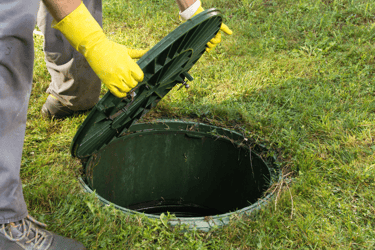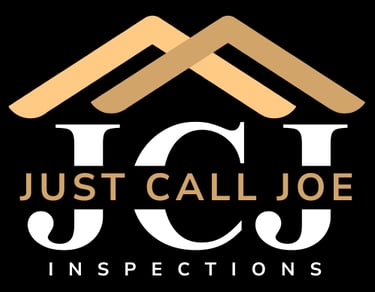Septic Inspections

Septic Inspections
Septic Inspections should be performed every three to five years, depending on use.
Septic Inspections should always be performed as an additional step to a Home Inspection.
A septic system inspection is a vital process for homeowners and homebuyers to ensure the proper functioning and maintenance of their wastewater disposal system. This inspection is crucial in identifying potential issues, ensuring compliance with local regulations, and maintaining the health and safety of the environment. Here, we provide a detailed description of what to expect from a comprehensive septic system inspection.
Visual Assessment:
The inspection begins with a visual assessment of the septic system's components, including the tank, distribution box, drain field, and associated piping.
The inspector will check for any visible signs of damage, leaks, or wear and tear.
The condition of the tank's access covers and lids will be inspected for proper sealing and safety.
Tank Inspection:
The septic tank will be opened and inspected for sludge and scum levels.
These measurements help determine the tank's maintenance needs.
The tank's structural integrity will be assessed for cracks, corrosion, or other issues.
The inlet and outlet baffles will be checked for proper function.
Distribution System Examination:
The distribution box (if applicable) will be examined for damage or uneven distribution of effluent to the drain field.
The condition of distribution pipes and valves will be evaluated.
Drain Field Evaluation:
The drain field area will be inspected for signs of effluent surfacing, foul odors, or overly lush vegetation, which could indicate drain field problems.
Soil conditions will be assessed, and any signs of compaction or saturation will be noted.
Pumping, Maintenance, and History:
The inspector may request the homeowner's records of septic system pumping and maintenance to gauge the system's history and identify potential issues.
The Inspector may dig deeper into the history of the system, contacting municipalities for permits and history.
Report and Recommendations:
After the inspection, a detailed report will be provided to the client.
The report will include findings and recommendations for maintenance or repairs.
If significant issues are discovered, the report may include estimated costs for repairs or replacements.
A thorough septic system inspection is essential for maintaining a functional and environmentally responsible wastewater disposal system. It provides homeowners and property buyers with valuable information about the system's condition, compliance with regulations, and necessary maintenance or repairs. Regular inspections can prevent costly failures and environmental contamination, ensuring the longevity and effectiveness of the septic system.
For more information visit our



